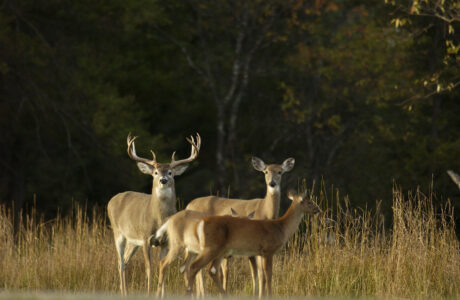Beef herd tests positive for bovine TB
According to a Michigan Department of Agriculture and Rural Development (MDARD) press release on Thursday, the department reported a case of bovine tuberculosis (TB) in a beef herd from Presque Isle County, located north of Michigan’s Modified Accredited Zone (MAZ).
The release states that the case was detected during the herd’s annual whole herd surveillance test. This is Michigan’s 84th cattle herd to be identified with bovine TB since 1998, and the first bovine TB-infected herd detected in the state since January 2025.
“The whole herd surveillance testing performed on all commercial cattle herds in the MAZ and in the counties surrounding this area (like Presque Isle) is a critical tool for identifying new cases of bovine TB,” State Veterinarian Nora Wineland said in the release. “While finding a new case is never ideal, we can all take action to decrease the opportunities for the disease to spread. Bovine TB is a persistent and challenging disease to address. Hunters, producers, academics, industry stakeholders, animal-health professionals, and state and federal agencies all have a vital role to play in combatting this disease and protecting animal and human health.”
According to MDARD, bovine TB is a bacterial disease that can affect all mammals, including humans. It is known to be present in the free-ranging white-tailed deer population in specific areas of northeastern lower Michigan, and the disease can be transmitted between deer and cattle. As a result, there are currently two TB zones within the state which includes a four-county area (Alcona, Alpena, Montmorency, and Oscoda counties) known as the MAZ, where the majority of bovine TB cases are found in the wild deer population; and the remainder of the state, which is referred to as the Accredited Free Zone (AFZ).
The release states that MDARD and other state and federal agencies are taking significant steps to manage bovine TB in the MAZ and Presque Isle County. MDARD explains that routine surveillance testing of cattle herds, mandatory animal identification, required movement certificates, wildlife biosecurity programs, and the continued hunting of deer in northeastern lower Michigan are all important tools in maintaining healthy deer and cattle populations.


